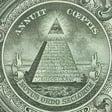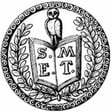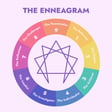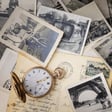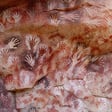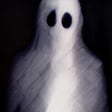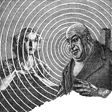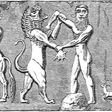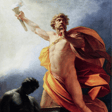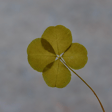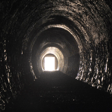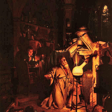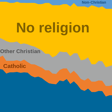Introduction to 'Philosophy on the Fringes'
00:00:03
Speaker
Welcome to Philosophy on the Fringes, a podcast that explores the philosophical dimensions of the strange. We're your hosts, Megan Fritz and Frank Cabrera.
Astrology: Science or Pseudoscience?
00:00:12
Speaker
Today we're talking about astrology. Is astrology a science? A pseudoscience? How can we gauge its accuracy? And why have humans always been compelled to read the stars?
Astrology and Christmas: A Special Connection
00:00:39
Speaker
All right, welcome back to our 20th episode of Philosophy on the Fringes. Frank, can you believe it's been 20 episodes? I cannot believe it. We've come so far. We've come so far. Did you ever think we'd make it for 20 episodes? Yeah, definitely. Okay. i don't I don't know that I was as optimistic as you. I mean, I hoped we would. But anyways, today we're talking about astrology and it's it's super relevant for Christmas.
The Three Wise Men: Astrologers in the Christmas Story
00:01:04
Speaker
Yes, this is a Christmas episode because if you recall from ah the Christmas song, We Three Kings, right, from Orient are bearing gifts. We've traveled so far. Those guys are and astrologers, right?
00:01:19
Speaker
I'm not sure those exactly are the lyrics, um but right. No, aren't those the lyrics? I don't know if it's we traveled so far. Maybe that's um true. something they Yeah, that's that's the modernized version. But right, that the kings of Orient, the wise men in the Christian Christmas story were astro ah astrologers, but probably. That seems to be the critical consensus is that the men depicted are supposed to be ah Zoroastrian court astrologers.
00:01:47
Speaker
who saw a sign in the sky, right, a star, and they're looking for the... Yeah, they study the skies anyway, because that's their job, and and they see a new star, presumably above the the the spot in Bethlehem, and they and they go out in search of what it's signifying.
Cats and Travel: A Recording Anecdote
00:02:03
Speaker
um So the the Christmas story really kind of prominently features astronomers. I'll just go ahead and tell our listeners if they're maybe catching that noise in the background. We're in a situation where we have to record in a room,
00:02:15
Speaker
with some cats who are anxious to get out of the room, but are not allowed out of the room. um We're traveling, so we're not in our usual recording spot. And, ah you know, one of the cats has some allergies. I don't know what to, but he's sneezing a lot. So if you hear some cats in the background, it can't be helped. Hopefully you're a fan of cats. They're pretty good ones.
Defining Astrology: Celestial Influence on Humans
00:02:34
Speaker
So I guess we should start off just for, um maybe there's someone listening to this episode who just doesn't know what astrology is.
00:02:42
Speaker
Yeah, I guess we should start with the definition, right, as best as we could. but um So we can think of astrology as the configuration, the idea that the configuration of the celestial bodies provides information that is highly relevant to very specific human affairs, either because those celestial bodies cause what goes on down here, or they just merely signify ah but something about what goes on down here.
00:03:06
Speaker
So this is it's kind of hard to give a definition of astrology that doesn't include things like the sun being there is relevant to our our human affairs. The sun is a celestial body. It's being in the sky is relevant to us because when the sun's up there and we see it, it's day, we get up in the morning. So we don't want to include that as astrology, but something like all the celestial bodies being very, very relevant to very specific things that go on in the earthly realm.
Astrology's Philosophical Significance: Then and Now
00:03:35
Speaker
right. And it's sort of interesting that we're talking about this in philosophy on the fringes, because while it is on the fringes of modern academic philosophy, it certainly was not on the fringes of ancient philosophy. So we're kind of bringing it back yeah into conversation from, you know, it's thousands years hiatus. It's time to start philosophizing about astrology again.
00:04:01
Speaker
Yeah, we'll we'll get into that in more detail, right? Like a lot of philosophers were in ancient philosophers were into astrology, largely because they were into astronomy, the scientific study of the movement of the heavens, and they didn't really make much much of a distinction between astrology and astronomy. and they will well We'll point out what the distinction was, but they often use the word astronomy and astrology interchangeably.
00:04:22
Speaker
So the kind of astrology that we do today, mostly, um that that we're most familiar with is based on an ancient system, right?
Origins of Western Astrology: From Babylon to Zodiac
00:04:33
Speaker
Yeah, so the kind of astrology that most people are familiar with in the West is based on um ancient Mesopotamian, ancient Babylonian astrology going back 4,000 years in the Bronze Age. But importantly, many ancient civilizations, I i i imagine most ancient civilizations had and'm an astrological system and they were different, right? Chinese astrology differs from Greek astrology, it's different from Indian astrology and Mayan astrology.
00:05:00
Speaker
um but The one we're most familiar with, which was picked up by the Greeks, I imagine that's why we're most familiar with it, is based on the Babylonian system, which had its origin as a kind of collection of signs and omens. Like they'd see a comet or a supernova or something like that, and they'd say, oh, this this portends these outcomes. So it originally began as just a collection of signs and omens, eventually developed into the familiar 12-sign zodiac
Sun Signs and Personal Reflections
00:05:29
Speaker
system. so you divide up the the sky and the 12 equal sections, each one corresponds to a constellation, and that's how we have our 12 sign zodiac. So that's that ultimately goes back to the Babylonians, the Greeks innovated on this system too, um but that's the one that most people know.
00:05:45
Speaker
And most people in the West today are are at least familiar in astrology with ah the concept of a horoscope and their sun signs. So Taurus, Leo, Cancer, whatever, what have you, Scorpio.
00:06:03
Speaker
And your sun sign is based on your birthday, where the sun appears in the sky. Which constellation it appears in? Yeah. It's kind of technical. The constellations don't necessarily correspond to the actual zodiac with the constellation's shift over time. So it's really what's paramount is the part of the sky the sun is in from the perspective of the Earth. I see. I see. I see. And that's supposed to determine your personality, your relationships, which career is good for you, various life events and all of
Sun Sign Compatibility: Pisces and Cancer
00:06:35
Speaker
that. So it'll be fun to talk about our horoscopes briefly or the kinds of personality traits that match with our signs. Yeah, I was going to say we haven't bored our listeners with irrelevant personal information yet. So Frank, what is your sun sign? So I'm a Pisces. This was first brought to my attention, I think, in high school by my friend, Waina. So I'm a Pisces. I was born March 5th. And according to Google, Pisces are very intuitive. They're in tune with the feelings of others. Very emotional, emotionally sensitive and dramatic, spontaneous.
00:07:10
Speaker
Uh, trendsetters, they're ahead of the curve, yeah effortless trendsetters. And they have a unique sense of fashion that can be costume-like or retro. There you go. Fascinating. OK, so that's what you that's so supposed to describe you to some extent. Yeah. And I found on the Internet from browsing around on Reddit and all of that that Pisces don't have a good reputation in the astrological world. Pisces are are often regarded as the worst zodiac sign. There was an article in Vice News that said Pisces are tender flakes who live in their feelings. So I'm going to call you a tender flake sometime. but Yeah. All right.
00:07:47
Speaker
um okay so megan you are a i'm a cancer right june 28th yeah june 28th and i will say i always hated being a cancer because it's called cancer yeah it sounds more of it right i don't want my yeah i don't i don't want my astrological sign to be like a deadly disease um So, i you know, I was all that was the most irritating thing to me. But yeah, according to the authoritative sources on the internet, cancers are known for being emotional, nurturing, intuitive, just like Pisces, I guess, and are often described as quote, the caretakers of the zodiac. Wow. um I'm sensitive, protective.
00:08:31
Speaker
loyal, domestically oriented, passive aggressive, and hard to convince. So Frank, do you- I think you're just regular aggressive. You are hard to convince, domestically oriented. I'm not sure you like to create cozy spaces, but you do like to bake. So there you go. I feel like I am not very, I often hear cancers described as really like romantic. And as you unfortunately know, I struggle with that.
Astrology in Social Order and Prediction
00:08:58
Speaker
But good news for us, according to today dot.com and yahoo dot.com, Pisces and Cancer are very compatible, a highly compatible duo. In fact, according to this article from yahoo dot.com, one of the most celebrated astrological compatibilities, because they're both water signs, so.
00:09:16
Speaker
Good for us. That makes sense because it would be awkward if one lived in the water and the other didn't. Yeah. I know you put a high credence on Yahoo dot.com news. So i'm I'm sold on that. So I think that has to be right. Great. Okay. Well, I think it's safe to say that um neither of the kind of generic descriptions of our sun signs really get us that well. Well, we need to go to a professional astrology to get like a really accurate thing. Yeah, surely you can't get accurate stuff for free on the internet because, you know, otherwise they'd have to charge for that. ah so So most people are familiar are familiar, they're familiar with astrology, they're familiar with this kind of personality, it's like a personality test almost. But ah historically astrology was used for a bunch of other stuff besides, you know, determining your you fate or your predispositions based on your birthday.
00:10:04
Speaker
So, we can think of it also as kind of justifying the social order. and We talked about this as a function of ritual. I mean, our episode on myth. So, famously, ah Caesar Augustus, the first Roman emperor, was so into his astrological sign that he commissioned a coin with it on the back. So, he was a Capricorn. I guess he got a report from an astrologer that said that he was going to become emperor and rule the world. and and Is that the goat?
00:10:30
Speaker
ah I'm not sure. Yeah, I think so. Yeah. Yeah. Yeah. Yeah. Yeah. So, so, yeah, so obviously, you know, he's using this as part of his propaganda. I say, yeah, I am supposed to be the emperor of the world. Historically, it was used to predict or explain important large scale events like the Black Death, one alleged cause of the Black Death, according to the the experts back then in the Middle Ages, was that a bad conjunction of celestial signs.
00:10:59
Speaker
So that's one of our other sort of use of astrology.
Astrology vs. Astronomy: Historical Overlap
00:11:01
Speaker
Another one, would this is interesting, this is still prominent today, maybe not as prominent as the the natal horoscope, but medical astrology. So the idea is that the configuration of the celestial bodies has some medical significance. So the and you know the stars are thus and so, or the the planets are thus and so, ah that might be might lead to certain medical conditions. So one one person on the Reddit Ask Astrologers, We only consulted the finest resource ask for this. No, we're're we're engaging with the people and academic sources, okay? So she said, I was curious that anyone had, was well-versed in medical astrology. I just got some blood work back and everything is in tip-top shape aside from my testosterone levels. I'm a 31 female. And someone responded, oh yeah, the the moon in general rules over the body but is also a placement we can see into four hormones. Testosterone, like the quintessential male hormone, and Mars is like the essential male planet.
00:11:56
Speaker
It makes perfect sense that your testosterone levels will be off based on your your horoscope. So just an example of what this might look like. And and this was a fairly prominent ah you know and in in the Middle Ages up until the early modern period. The idea that the configuration of the planets had some medical significance. So I guess this person, they're there the Mars is in the wrong spot for them and that's leading to low testosterone levels.
00:12:19
Speaker
That's incredible. And is that part of astrology that Mars is like has like something about male-ness? Yeah, God of War, of course. So that's part of like? Yeah, Mars is generally associated with masculine, aggressive, war-like thing. I know that Mars is and like in like in like Greek mythology, but I didn't know that this had made it into astrology as well. Yes. That was just because the planets named Mars. Yeah. Gotcha. Yeah. OK.
00:12:46
Speaker
So earlier Frank mentioned um the difference between astrology and astronomy, hopefully a distinction that most of us are familiar with, but in the ancient world this distinction was not as distinct.
Cicero's Critiques: The Twin Problem in Astrology
00:12:58
Speaker
One of the most famous ancient astronomers was ah also an astrologer.
00:13:03
Speaker
Yeah, so this was ah Claudius Ptolemy. He wrote his famous astronomical work, The Alma Guest, and that was what Arabic ah commentators called it. ah He also wrote a work in astrology called the Tetra Biblos, where he defended astrology, the idea that, like but like we said, that the the configuration of the celestial bodies tells us something that's relevant to human affairs.
00:13:23
Speaker
It's probably the case that astronomy got its head start. it was It was something people were into because of its potential astrological significance. Why spend all the time doing this tedious painstaking work of charting the heavens and coming up with mathematical models to predict things more accurately if there's no point to it for human affairs. So really, it goes hand in hand. like Astrology was that kind of the spearhead of astronomy.
00:13:50
Speaker
That makes sense. so That makes sense when you have you know limited time, then you know you want to focus on the stuff that's going to help you um rather than maybe just knowledge for its own sake. Yeah. Interesting. I never knew his first name was Claudius somehow. and yeah he was Yeah, he was a Greek living in the Roman world. Yeah.
00:14:07
Speaker
ah So, I think we already sort of hinted at some criticisms of of astrology, so we'll we'll be getting to that that in more detail soon. But it's worth pointing out, not everybody was into astrology during the ancient world. Not every philosopher, not every thinker was into astrology. ah One prominent critic of astrology, at least ah at least he represented certain criticisms, was the Roman statesman Cicero, right there in the first century BC. You wrote a paper on Cicero's critiques of astrology. Yeah. yeah we i We'll link this in the episode, babe. Yes. i have I have a paper on Cicero's general critiques of the idea of divination, the idea that God send us signs to tell us what's going to happen or warn us about what's going to happen.
00:14:49
Speaker
and um so you know You can check out the paper to see all the details of Cicero's critique of divination, but I'll mention a few problems briefly that he talks about here. One of these is is often associated with the Christian philosopher Augustine, that the so-called twin problem. right so This is a very common critique of astrology. You could probably still find this today. A lot of these critiques I think you can.
00:15:10
Speaker
The idea is, well, if your birth is is ah associated with your personality and your fate and all that, well, shouldn't two people were born at the same time ah in the same place, the twins, for instance? Shouldn't they have the same life trajectory? But of course, we know that's that's not the case. There's lots of twins who live different lives. Lots of people born on the same sign in the same place live different lives and and vice versa.
00:15:37
Speaker
So how do you make sense of this um if you're if you're an astrologer? um Another
Astrologers' Defense: Non-Deterministic Approach
00:15:42
Speaker
problem I call the the mechanism problem. The idea ah that's is, well, how does this really work? right Suppose we take it for granted that the ah stars and the planets and their configuration affects highly specific things that go on here. How? like How does that work? What's the mechanism? So this is also a very common critique you can find among contemporary scientists and debunkers, skeptics.
00:16:05
Speaker
um And Cicero represents this critique in his in his dialogue on divination. He says, in view, therefore, of these almost limitless distances, what influence can the planets exercise upon the moon or rather upon the Earth? So, yeah, so we there's already sort of critiques in the ancient world that I think still have currency today.
00:16:23
Speaker
I wanna play astrologers advocate. Very good. Just to see what you would say. So, okay, so for this twin problem, I don't know. So I feel like if I was an astrologer, I would say actually there's like way more weird instances of twins doing the exact same thing, even when they're like separated immediately at birth. So you hear these stories, I'm sure you've seen them, where like, you know, two twins given up for adoption or whatever when they were born, they went to like different homes, different,
00:16:52
Speaker
you know some of these different countries, and when they discovered each other and met and learned about each other's lives, they had done like freakishly similar things. like Went into the same career, married, you know women with the same name, had like the same number of kids, you know had the same style, whatever.
00:17:09
Speaker
and And so like that that does actually seem strange and and it you know twins do tend to have really similar characteristics like IQ or interest or whatever. So obviously they can have different fates, but you you know unless astrology is supposed to be super fatalistic, we might think, well, that's just because of like external things that prevented you know what otherwise would have unfolded in their lives from unfolding. Yeah, you're already, you're already sort of anticipating some of Tommy's defenses of astrology and the Tetra-Biblet. Wow, you're just... Me and Claudia are on the same wavelength. Yeah, you would have been a perfect ancient astrologer. um So yeah, so Cicero, i so here's what I think Cicero would say about um about this. So i should I should mention that this is a dialogue. So there's characters in On Divination, one defends astrology, one
00:18:00
Speaker
run one attacks it, so who knows what the man Cicero actually thought. But ah the character Cicero, ah he he he says the following thing about this. So I think first he would just doubt that there are these kinds of correlations. This is is really interesting um that other that the the character that defends divination in Cicero's dialogue, he says, look, I don't know how it works, but I know that it works. right I know that when Jupiter and Mars are in this configuration, thus and so happens. right I know that there are these correlations.
00:18:30
Speaker
Cicero, he doubts, or the character um that represents a skeptic in the dialogue, doubts that there are these correlations. He's like, I don't believe that you that this has the historical track record that you're saying it does. And then second, he says, when when twins are alike, it has more to do with what we would call genetic factors. So he talks about the seed, this the parental influence with That's very sophisticated. Yeah, it is a very sophisticated, it reads like a very modern, like naturalistic, skeptical um attack on astrology. It was written in the first century BC. So again, we don't know what Cicero, the man thought, but he at least did a really good job representing like what we would we would identify as a modern, skeptical point of view.
00:19:09
Speaker
But Ptolemy does not like these, or he doesn't he doesn't think these are sufficient. I'm not sure if he responds directly to Cicero, but he responds ah directly to a lot of these kinds of claims. So first he says, look, the core postulate of astrology is just undeniable. The idea that the heavens affects what goes on on Earth. Look at the sun. Clearly that has a large effect on what goes on here on Earth. So why not extrapolate and say that the the fixed stars and the planets also affect what goes on here on Earth? I mean gravitational pull. We know that's a thing.
00:19:39
Speaker
Yeah. So not a not a bad analogical argument for the like you know a second century AD. And he does kind of gesture at various mechanisms at times. So he talks about the four elements, air, earth, fire and water. or They have various qualities. The planets are associated with these qualities and the qualities, you know, I don't know, somehow affect ah the the the qualities being exuded by the planet somehow affect us. Sometimes he talks about rays and the stars reaching us or the real matter.
00:20:09
Speaker
So he has a gesture of various mechanisms, and he points out it's a very kind of conjectural, almost like an art. It's not a science. It's very conjectural, as you pointed out in your attempt to be the astrologer's advocate. There's many influences on our fate, even if you're a dyed-in-the-wool astrologer. You do recognize there's other causal factors. The astrologer only wants to say that the stars are one factor, maybe the most important factor, but not the only factor.
00:20:37
Speaker
um Sometimes he says, look, if if if the astrologer gets it wrong, um you know that's that's the astrologer's fault, not the not the art. you know blame Blame the person, not the not the art. And finally, as you suggested, maybe they the stars just incline, they don't compel, so they do not take away our free will. ok Just because you're into astrology doesn't mean necessarily to be a determinist and deny free will.
Astrology in Philosophy of Science: Pseudoscience Debate
00:21:00
Speaker
Just because I'd naturally be inclined to be intuitive and sensitive doesn't mean that five years of grad school can't drive that out of me. Yeah, certainly so. And my fashion sense, you know, also, I must have had like an inherently, ah inherent fashion sense that was driven out of me as well. Oh, I actually was gonna say I thought that was accurate. I like your fashion. My my The Doors shirt is here, but I'm fashionable.
00:21:22
Speaker
So insofar as astrology does make it into contemporary philosophy, it's mostly in the kind of like 20th century philosophy of science. And there is actually kind of a like a dialogue about it among these philosophers of science, kind of talking about astrology and the and and it comes up in the discussion of science versus pseudoscience or science versus non-science.
00:21:47
Speaker
as kind of this tough case. So we're trying out different ideas of what makes something a science. And often astrology is kind of used as a test case. Well, if our understanding of what science is includes astrology, maybe there's something wrong with that. And so Karl Popper- You gotta just assume at the outset that astrology is clearly a pseudoscience. Right, exactly. It's like a paradigmatic pseudoscience. Right. So what makes it a pseudoscience is the question. Right, right, right, right. Yeah, so Karl Popper, I think is at least the first prominent one to kind of bring this up, to bring up astrology to use in this way. And he says, well, my picture of what is a science actually perfectly shows us why astrology is not a science, it's a pseudoscience. And that is because astrology is unfalsifiable. It doesn't make claims that can be falsified via experiment, and therefore it does not count as a science.
00:22:43
Speaker
And then kind of in response to Popper, right, Coon is responding, Thomas Coon is responding to Popper's picture of science, I think. And he agrees with Popper that astrology is not a science, but he thinks it's for different reasons, because he does actually think maybe astrology is falsifiable, it can make predictions that are falsified. Like my horoscope in the Washington Post today, I looked it up just for this episode, and it said that I had my head in the clouds and i wasn't I wasn't down to earth. you know i wasn't I wasn't really down to earth recently. That I think is false. You were super down to earth today. Yeah, I've been taking care of a sick two-year-old today. My head's nowhere near the clouds. And he says that astrology is not a science, but it can make falseifiable claims. But it's not a science because to be a science, it has to, in order for something to count as science, it has to be work done within a particular paradigm.
00:23:41
Speaker
yeah A paradigm being a collection of foundational commitments that everyone working in the research tradition all accepts. Agreement about what the problems are, agreement about the methods by which those problems could be solved, that sort of stuff. Something like ah like a limited worldview, yeah one might think of it as. And astrology does not isn't work done within a paradigm. Within within which you you solve puzzles. Right. yeah right So you so years no there's no puzzle solving when it comes to astrology. Unlike and like Newtonian physics, that was a paradigm. There was a set of of core commitments, like but the laws of motion and theory of gravity. ah There was puzzles to be solved. there were There were certain things that the the theory predicted that didn't quite measure up to the theory and we had to figure out why that is and we figure and we figure things out. we get We get more precise, we elaborate the laws, we we apply it, and we we make it better. There's nothing like that in astrology. So we have like the germ theory of disease and we can do what Kuhn called normal science within this paradigm, within the germ theory of disease, by assuming the germ theory of disease and then solving puzzles like why do obese rats do this when they have XYZ disease within that paradigm? But he said with astrology, that's that that's not what's going on.
00:24:58
Speaker
Yeah, there's no research. There's a collection of rules and heuristics and things passed down for thousands of years that you just sort of apply. Right. Right. And that seems it seems right to me that that Popper's incorrect about astrology. it It does seem like it at least can make falsifiable.
00:25:16
Speaker
Yeah, for I think I think Popper is pretty clearly wrong about that. it It does make predictions, right? If you think that people born on the sign of Mars are more likely to be like aggressive or something like that. Well, you can do a statistical
Scientific Studies: Testing Astrology's Validity
00:25:28
Speaker
analysis, right? Get a bunch of people, see when they're born, see if it's if aggression is statistically significantly represented in the population.
00:25:35
Speaker
Yeah. um ah So whether Kuhn's right about there not being a paradigm, not being a research tradition, not being puzzle solving in astrology, i think I think there's reasonable disagreement about that. Some people think that Kuhn is wrong, that that if you there are core commitments to astrology. like we've We've talked about them already. What goes on in the heavens affects what goes on here on earth in very highly specific ways. That is a core commitment.
00:26:02
Speaker
ah Astrology has developed over time. like the The idea of the zodiac wasn't always there. When the Greeks picked up the Mesopotamian astrology, they added stuff to it, other techniques of of trying to predict things. So it has developed over time. i mean when When an astrologer, a professional astrologer, makes an incorrect prediction, they will try to figure out why that was incorrect. They'll maybe subsume your horoscope under a more general horoscope and then then and then try to explain why the prediction was mistaken. So it does seem like they're in a sense trying to solve puzzles. I think i think maybe the best ah were the best sort of account of why astrology might be a pseudoscience from 20th century philosophers of science comes from ah the the philosopher Lakatos, who's focusing more on whether the research program is progressing or degenerating. So for Lakatos, you're progressing as a research program if
00:26:59
Speaker
when you sort of modify the theory to so to to explain and excuse why you got it wrong, you are improving the theory. like You're making novel predictions that are then therefore successfully observed. The question is, when you when you try to save the theory from falsification, when you try to modify it to explain why things went wrong, do you improve it? Are you progressing or are you degenerating? That's kind of what I was thinking because it's like I've never heard of, I've never heard of like a big astrology, you know, issuing a statement like, you know what guys, we got it wrong. Capricorns are actually not headstrong. Yeah. there They're, they're, they're actually quite neat. Yeah, and if you look at like the history of science for progressive research programs like Newtonian physics, um there were times when the predictions didn't match up to the theory. One famous incident was where the the the orbit of of Uranus was was off, right? Newton's theory predicted it would be x. When you looked at it, it was observed to be y, where y is not x.
00:27:58
Speaker
And so some people are like, well, maybe there's another planet out there that's affecting Uranus's orbit. and And lo and behold, there was. right They found Neptune. that was And that explained why Uranus's orbit was off. And so, yeah, it did lead to a new discovery. It led to the discovery of of Neptune. It was a progressive development. yeah But we're not like discovering new things about people born under particular sun signs. And so if you're constantly degenerating and not progressing, then you might say it's a pseudoscience, at least according to Lakatosh's idea. That really lines up with my like what I feel like are you know some of my my biggest issues with astrology. oh they just they've They've never like issued a retraction yeah for any of this. Yeah, I was surprised to learn how ah how much in the 70s and the 80s, scientists genuinely tried to test the theory. and So it really has been tested. For instance, there's a study in Nature from 1985, where they had a they had a bunch of professional astrologers, the best astrologers there are, according to the community, and they tried to see if they could match up various personalities with the the the birth chart. right So they gave the people the birthday, they gave them three different personalities, and they tried to see if they could figure out what the correct personality was, according to a a different personality test.
00:29:17
Speaker
And they were only they only matched one in three charts correctly. right So they were no better no better than chance. So there's stuff like that. you know There's other large-scale to statistical studies. There was a study in 1980 that looked at 10,000 university graduates to see if there's any relationship between their birth date and their career. but if If astrology is correct and your your your birth date affects your personality, that should affect your career.
00:29:42
Speaker
um And they did not find the the the expected correlation. Yeah. Yeah, they looked at thousands of people who had the Aries trait to see if they had personality traits that go with Aries and, you know, there's no correlation. Right. So, yeah, it does seem like it it it doesn't hold up to scientific scrutiny.
Astrology's Popularity: Personal Appeal vs. Scrutiny
00:30:00
Speaker
but despite well But despite that, apparently about a third of Americans still place yeah at least some credence in in in astrology. Well, that's probably because they don't believe it because a scientific study shows that it's correct or or they don't know but disbelieve it because it shows it's incorrect. they They look at the horoscope and they say, wow, that really describes me. It's kind of very personalistic.
00:30:24
Speaker
I mean, I guess sort of makes sense. Sort of like a fortune cookie. Like you get a fortune cookie and maybe it says something like, a great surprise awaits you in the coming week. And, you know, maybe in the coming week, it's just like a normal week, but your spouse brings home your favorite takeout and you're like, aha, yeah that was it.
00:30:48
Speaker
That was the great surprise. um so like the you know it's so what they To some extent, what they say is really like vague. you know Is my head in the clouds this week? Is my horoscope set? I feel like it hasn't been, but I guess I can think of a lot of times where I was. kind of you know, daydreaming or whatever, because I've been very tired. ah So, you know, maybe it was right. I don't know. it's it's ah I guess this is just sort of how like, you know, on shows where they have like a psychic come and do like a cold reading, they say vague enough things. And I guess if you're already inclined to put credence in these kinds of things, then you might see those vague predictions as being accurate rather than just vague.
00:31:35
Speaker
Yeah, so they're so vague that they're bound to occur. So I think this is actually a super significant point and sort of undercuts the kind of value, the rational value of of astrology. Because if if they're so vague and specific that they're bound to occur, that one way of interpreting that is is it means that the the predictions have antecedently.
00:31:53
Speaker
probably like a prior probability of near one to say that there's going to be sadness tomorrow somewhere on earth. That basically has a prior probability of of almost one. you can be You can be pretty sure somewhere on earth there's going to be sadness. I mentioned this because I saw a video on YouTube from an astrologer making this kind of prediction. She said, oh, I i predict there'll be some sadness.
00:32:17
Speaker
Well, of course, that's bound to occur no matter what. So the prior probability is almost 1. It's like 0.999999. Well, we know from Bayes' theorem, the Bayesian philosophy of science, that if your evidence has a prior probability of almost 1, it's not going to do anything to confirm your theory. So we shouldn't be surprised. We shouldn't be like, oh, wow, astrology has been confirmed. There's really something to this if what it's predicting is just bound to occur. You can show this from the Bayesian philosophy of science. If the thing being predicted is almost one, then it's not going to do much to confirm your theory. Sure, so if I come up with any scientific theory at all, and part of my theory is that one plus one will equal two, then the fact that one plus one equals two, that confirms my theory very slightly, but not enough to make any kind of a difference. It might not be anything at all, because that one might be probability one. Okay. All right. So maybe if, yeah, if my theory predicts that at some point- Stuff exists. That stuff exists. Yes, stuff exists. Maybe that's better. I don't know. Yeah, sure. Or that sometime in the coming week, you'll feel sad. Yeah. Um, maybe, you know, that offers a tiny bit of confirmation for my theory, but like so slight as to kind of be meaningless because that, that was almost bound to happen. A good scientific theory makes novel predictions. It predicts things that are surprising, things that we shouldn't expect antecedently to occur. And when they do occur, we're like, wow, that really shows the theories onto something. If you predict something that's really vague and nonspecific and bound to occur, the theory shouldn't get much credit. That's the idea. And this isn't what Karl Popper talks about. Yeah, he talks about this too. So this is what Popper should have said about astrology, not that it's unfalsifiable.
00:34:03
Speaker
So, okay, with all of these arguments against astrology and kind of just it's like on the surface badness at giving us helpful or accurate predictions, you know, one might think, well, then why are people
Astrology's Comfort: Control and Personal Growth
00:34:17
Speaker
still doing it? Why is there still a daily horoscope in the New York Times and the Washington Post and every single website on earth pretty much? Like why is there, why is it still a thing?
00:34:28
Speaker
uh in the culture and I get so someone you were talking about earlier Lakatos something he how he might put it is that well maybe there's just not there's not a better game in town there's not like a better way to get the kind of thing people are looking for which is useful information about the future and a kind of sense of control and a sense of being known. And that's that's like a ah need humans have and that there's not a better way to get it. So we are still kind of just coasting along on these really bad ways to get it.
00:35:05
Speaker
Yeah, I want to know if they're going to succeed at work. I want to know if I'm going to succeed at love. You know you might say, well, you should turn to the social sciences. You should turn to ah to psychology and sociology to get answers to those questions. but You know, those guys aren't that great at predicting stuff either, right? You know, we we know that at the replication crisis in psychology, and and maybe you can only predict like coarse-grained trends in sociology and and and economics and stuff like that. But I want to know stuff about me. Like, am I going to succeed at love? Am I going to succeed at work?
00:35:37
Speaker
can can you tell me there and they might not be able to offer me anything and so we can sort of understand why people turn to um astrology and why it doesn't seem like it it, even despite all these problems, it doesn't seem like we should give it up because it doesn't seem like there's anything better.
00:35:52
Speaker
Right. it's It's incredibly hard to live with genuinely not knowing ah the future. A lot of times we have to pacify ourselves with things that we think give us a sense of control over it, or at least, if not control, at least knowledge of it. And and so, you know, maybe if it even if we have to kind of deceive ourselves to to feel that way, maybe. Maybe we're just using astrology as just a kind of like a comfort blanket.
00:36:17
Speaker
Well, I found another kind of potential defense of astrology. So let me explain and see what you think about it. So i i've I saw a few articles. I've seen this kind of perspective presented before. The idea is, look, I don't think astrology is a science. I don't think it tells me about the future.
00:36:34
Speaker
um Rather, it it helps me understand myself. So I've seen a few articles like this. So here's a few quotes from some of these articles. So ah one person said, look, um much of it rang true, other parts I flatly denied. Astrology was just one way of understanding yourself, I said. No different to any other human invented system for making meaning. Astrology was a place for my endlessly questioning mind to go. But what I found astrology instead was a tool to continue asking questions. Another person said,
00:37:02
Speaker
ah Think of astrology as a tool for personal growth and self-reflection rooted in storytelling. These archetypes offer insights into your actions, motivations, and desires. Engaging with your astrological chart encourages you to think deeply about your life, helping you narrate your own journey in connection with astrological symbols. Astrology doesn't predict your future. It helps you understand your present and write your own story more meaningfully.
00:37:26
Speaker
All right, so the idea is like, look, you can still get some value from astrology, even if you don't think it's predicting the future. In some sense, it could help you understand yourself. So thoughts about this, Megan?
00:37:40
Speaker
My first thought about this is that I feel like this is what everything devolves into when, what ah not everything, but all of these things that we've been talking about on our podcast, it seems like there's always this and kind of like ameliorative understanding of it, like ghosts or near-death experiences, you know, when presented with kind of these like devastating objections to their reality or seemingly devastating, you know, people will be like, well,
00:38:07
Speaker
okay, they're not like real, real in the sense of real, real, real, but you look how they help us understand or how they structure our lived experience or how they blah, blah, blah, blah, blah. And I don't know. I mean, like maybe everything does this, but at the same time, like it it it does seem like there's some kind of like, if that's all it is, then it kind of feels like play acting.
00:38:35
Speaker
You're a really skeptical mood today. so I guess I was a little more sympathetic to this this sort of idea. i guess I guess if I had like zero self-awareness and I had like no ability to reflect on my on like what I'm doing and who I am, then like reading a potential prediction about what's going to happen to me or who I am might like inspire some thoughts. I can at least like agree with it or disagree with it. I can think to myself,
00:38:59
Speaker
Am I really that way? Never really thought about that sort of thing. So I guess like for some people, reflecting on themselves is kind of difficult or painful. And if you read the the horoscope, that sort of is a jumpstart to a conversation you have with yourself.
00:39:14
Speaker
Okay, yeah, if you're like Truman from the Truman Show and you never reflected on your life before. Yeah, yeah sure. Lots of things can be ah like catalysts for self-reflection. But yeah, I mean, I guess, I mean, something that we haven't talked about yet with respect to astrology is its incorporation in the practice of tarot.
00:39:38
Speaker
as i And is specifically, well, I guess there there's two ways in which one can use tarot cards. One is just in a card game, um but another is explicitly for divination and and incorporates a lot of astrological elements as well.
00:39:57
Speaker
but But even ah in those cases, a lot of people I know who have done tarot have sort of said the same thing. They've said, well, you know I don't think that it's it's literal divination, but it's like actually a really helpful tool for getting me to think about things you know in the moment that I wouldn't have thought about otherwise. So, sure.
00:40:19
Speaker
Yeah, I'll let yeah have it yeah you have it. if you know if that's you know Drawing the death card in a tarot game is is the thing that gets you to like reflect on your mortality and you wouldn't have otherwise. Then sure, that's good. um That's a good thing. Yeah. so That's my thoughts on that. All right. But if you think that I'm down ah on astrology, there are a group of individuals who are far more down on it than I.
1975 Manifesto: Scientific Opposition to Astrology
00:40:46
Speaker
Are you referring to the 1975 Manifesto in The Humanist magazine, Megan? I am referring to the 1975 Manifesto in The Humanist magazine, Frank. Yes. So in 1975, 186 leading scientists and a few philosophers ah signed a a statement were the entitled objections to astrology. So in this it was a very short statement that listed various criticisms of astrology. These criticisms included things like astrology is part of a magical worldview. You know, people only turn forward to comfort and it contributes to the growth of a rationalism and superstition in our society. I guess in 1975, there must have been some kind of ah revival of interest in like the occult or astrology or something. Yeah, the satanic panic that followed that. Yeah, 80s and 90s. It followed the occult revival, I think. Yeah. So yeah, so we have a bunch of scientists that signed this sort of statement objecting to astrology. It was fairly short. They listed some criticisms. Some are similar things we've already talked about.
00:41:47
Speaker
um And yeah, this is an interesting a thing to dig up from from history. It's about 50 years old now. And it was it it led to a lot of commentary. right So a lot of some of these scientists were offered an interview on BBC. Famous philosophers and scientists ah commented on this. Interestingly, the great Carl Sagan, the astronomer, popularizer of science,
00:42:10
Speaker
And popularizer of turtlenecks. And turtlenecks, cosmos. ah So he actually objected to the statement. This is interesting. He did not want to sign the statement. heres here's Here's part of his reason. He said, I struggled with the manifesto's wording and in the end found myself unable to sign. Not because I thought astrology has any validity, whatever, but because I felt and still feel that the tone of the statement was authoritarian.
00:42:33
Speaker
It criticized astrology for having origins shrouded in superstition, but this is true as well for religion, chemistry, medicine, and astronomy. and We talked about the origin of chemistry in alchemy in a previous episode. He also objected to the speculation about the psychological motivations of people into astrology. These were irrelevant to its its scientific um validity.
00:42:53
Speaker
In addition to Carl Sagan, the philosopher Paul Fireben objected to the statement as well. Fireben was a weird guy, I think is the consensus on him. He's a philosopher of science. He wrote Science in a Free Society, which was published in 1978.
Science in Society: Trust and Democratization
00:43:11
Speaker
He called himself an epistemic anarchist, arguing that there wasn't actually any such thing as the scientific method, a very bold take for a philosopher of science to take.
00:43:23
Speaker
But he was kind of this like, ah one might think of him as like a postmodern philosopher of science. Although I've heard different- Very controversial figure. i'm right I'm not sure he thought of himself that way, but- Yeah, I think, he interestingly, he was a fan of Kierkegaard. So that always made me interested in him. Nature Magazine nominated him as the worst enemy of science, not a great thing if you're a philosopher of science. I yes i think a lot of philosophers of science, yeah myself included to some degree, although I'm open to learning more about him, I think he he know he he did he did not give philosophy a good ah good reputation among scientists ah because it seemed like he was defending things like astrology and things like i don't i don't know like witchcraft or something. so Did he not sign the statement because he liked astrology?
00:44:10
Speaker
but he wasn't offered He wasn't offered to sign the statement, but he but he criticized the very oh the very fact that the statement existed. um he thought yeah he he agreed He kind of agreed with a lot of the criticisms of of Carl Sagan that it seemed very authoritarian. and They didn't offer reasons ah for objecting to astrology. It sort of just seemed like the scientists were flexing their credentials, and that and that gave science a bad a bad rap among the public.
00:44:36
Speaker
definitely reads very like reddit atheist-y for sure instead of like kind of ah a more measured like explanation of why astrology in particular is a problem. Yeah, so fire up and didn't believe in astrology. He says I have no special love for astrology and much that has written this area bores me to tears but astrology is an excellent example of the way scientists deal with phenomena outside their area of competence. They don't study them, they simply curse them insinuating that their curses are based on strong and straightforward arguments.
00:45:05
Speaker
So, so yes, that's kind of badass though. Yeah. I kind of like that. I think there was an interview where someone was like, okay, well, why are you up to this? Why do you care about this so much? And he's like, I care whenever someone trying to be an intimidating bully. That's what he said. Okay. um So, so yeah, this is, so the, the case of fire Robin and the astrology manifesto is really interesting because he's raising a number of important issues about science that are so relevant to us, right? Like what's the role of science in a democratic society?
00:45:33
Speaker
So, like for instance, like science is now very, very specialized, very, very professionalized. you and In order to really understand what's going on in the science journals, you almost need to have like a PhD in the relevant field. and even Even people in the field next door often can't understand what's being written in in the papers. Extremely easy for a layperson to misunderstand the the scientific pronouncements now. yeah And then science communication in the newspapers doesn't doesn't help all. Right.
00:46:01
Speaker
So like this this raises the puzzle, though, because science is really important in our society. Decisions are made based on based on ah the deliverances of the scientists. You can think of the COVID-19 pandemic, for instance. Various public health policies were enacted because of what medical researchers but said, right which was what their findings were.
00:46:22
Speaker
So the the the worry is like, well, if we live in a democratic society, we need to be able to scrutinize like the institutions that affect us. We need to be able to criticize them. that's That's part of what it is to live in a democratic society. right But it seems like in order to be able to criticize the scientific claims legitimately and have your claims be taken seriously,
00:46:40
Speaker
You need to kind of be part of the club. You need to go understand the lingo. You need to understand the sophisticated methods that generate the results. I need to have this kind of tacit sense of what's plausible and implausible that can only be that can only be generated by being in the community and practicing the science for a long time. So like what do we do here? right like How do we square democratic society with affording the scientific institution All this power that that's that's the kind of puzzle I think that fire on was kind of gesturing at so like the continuation and deepening of the empirical sciences it Inevitably leads to a lack of democracy. Yeah Yeah, something like that. Yeah. i mean and And you might say, well, that that's inevitable. And it's not a bad thing. There are some who who have taken this this sort of ah view um in in a in a paper by ah the contemporary philosopher ah Ian James Kidd on the fire up in question. Like, why did he defend astrology?
00:47:41
Speaker
um He cites the the the philosopher and scientist, Michael Polanyi, who adopted this this view that, yeah, this is just an inevitable result of the progression of science. like The public can't really participate in the scientific process in any meaningful way, and they just need to trust the the institutions.
00:48:00
Speaker
So, the the way to solve this problem is to make sure that the public trusts the institute it trusts the institutions, and then they don't need to to criticize and scrutinize the claims for themselves. I think that's something, and Kidd argues this, that firemen did not like. like he his His idea for a a public was that they would be informed and critical and and and contribute in some way to the scientific process, to contribute to the science that is kind of affecting them. But once you get to a certain level of technicality, that's just not that i mean realistically, that's not possible. Yeah. And this is this is an important fact about the history of science. 19th century, yeah you could be the natural philosopher and make genuine contributions to many different fields, understand what's going on in many different fields. Nowadays, that's not the case. Things are way too specialized.
00:48:46
Speaker
So think we have this kind of like trade off, maybe like a necessary trade off between the democratization of scientific knowledge and advancement of science. yeah And that that's, it's it's not like obvious, which is the better choice.
00:49:02
Speaker
it's tricky It's tricky territory to navigate. I mean, and this is related to other other things that are are relevant to the current moment, like what experts you should trust, like expert authority. So, you know, we we tend to trust people that are you similar to us, think people who we believe have our interests in mind, people who are similar to us in various ways.
00:49:23
Speaker
Yeah. And probably like your average person isn't that similar to like John Nash or something like that. Yeah. And it's interesting because even if, even if everyone did come down on like, well, you know, it's, it's worth it to like lose the democratization of scientific knowledge for the purpose of scientific advancement. That doesn't, that doesn't mean that that that's how it's going to go because we actually then have to get the public to willingly trust these institutions. And that's something the institutions have to earn. And it's not clear how that's possible.
00:49:53
Speaker
Hmm interesting. So then that leads to people kind of seeing fire Robin as defending astrology as kind of this like folk Way of getting they're getting their hands in too.
Public Understanding of Science: Philosophers' Role
00:50:06
Speaker
Maybe I guess he was probably just being kind of a provocateur Right. He was already influenced by mill to like Mills arguments for freedom of speech John Stewart. I'll see right now Yes, the the John Stewart mill Right? we Even if you know that the dissenting opinion is false, it still would be maybe worthwhile to hear it so that you can refute it and better understand the truth, to keep um to keep living truths from becoming dead dogmas. So I think he's very influenced by that that as well. ah Here's one
00:50:34
Speaker
attempt at a solution. So let's see what you think about this. so um Massimo Pilucci, a philosopher of science, philosopher of biology, he proposes a a kind of third way here. right So we don't have to just say, trust the institutions, general public. We don't have to just say, be a a be a scientist as well.
00:50:52
Speaker
we can so We can have these sorts of mediators between the scientists and general public, people like philosophers of science, or sociologists of science, or historians of science, who could be the people who so watched the watchmen, as it were. People who, quote, know enough of the science to smell baloney when it's likely to be there, and yet whose interests are not aligned with those of the scientific community. So the idea is, you know, we can have something ah another way. yeah You can have these these other groups of people that that tell you what they think about what's going on in the science, you know, philosophers of science, historians of science, sociologists of science, and they they can participate in this conversation and and maybe give the general public some some insight into whether the the scientists are are up to no good or not. Thoughts about that?
00:51:40
Speaker
Yeah, I do have some thoughts about that. So ah obviously there's a sense in which this framework is utilized across all the fields, right? We have like literary scholars who help us better understand great works of fiction. We have art historians that help us better understand the art. But when it comes to science is this thing that like is constantly increasing in complexity and technicica technicalness at kind of this like exponential rate. It seems like we're going to need more and more mediators. Like the person that is directly trying to understand the scientists is going to slowly drift further from the lay person and then we're going to need a mediator between us and them. And now we just kind of have ah Aristotle's argument against Plato, the third man.
00:52:30
Speaker
ah ah That's it's an interesting connection you make there. Thank you. Yeah. Yeah. yeah ah So yeah, I think I think I had a similar thought here. like Doesn't this just push the problem back a step? um Because then I have to think to myself, well, why should I trust the the philosopher of science or something like that? And and I do worry that that at least some sciences are so technical that there's very, very few philosophers of science that really understand the science, the first order of science. And science seems like it's in a worse place than like those other areas I mentioned, just because of the rate at which it's increasing in complexity and and in um and just how things are becoming specialized in like ah at a quicker rate.
00:53:10
Speaker
Yeah, right. Like, there are some philosophers that understood epidemiological models during the COVID-19 pandemic. I was not one of them, right? I have to do philosophy of science. I didn't understand those. Like, those are some very complicated stuff. So yeah, I like this idea of, you know, I think philosophers and sociologists and historians of science should definitely ideally try to do this thing. But yeah, it also seems like it might pose its own set of similar sorts of problems. Yeah, I'm not sure that the general public trusts me as a philosopher more than someone who's a scientist. In fact, I kind of feel like it might be the opposite. Oh, it depends who you ask.
00:53:42
Speaker
ah Yeah, so I don't know. i yeah I guess maybe I am being, I'm being like a downer today. A mood. I know, but yeah, I'm not sure that I find this convincing either.
Conclusion and Upcoming Episode Announcement
00:53:55
Speaker
But I do want to end on one thing that I appreciate about astrology. And i maybe you're going to think that this is kind of insignificant, but I genuinely mean it. Okay.
00:54:06
Speaker
Okay. It really made me appreciate and seek out the actual like constellations in the sky. And I now have like a very personal connection to the Orion constellation, yeah which obviously is not one of the sun signs. But anyway, it actually made me really interested in the constellations and the history of those constellations.
00:54:30
Speaker
um and such. So that is something positive I can say about astrology. I think that it does draw our attention to the stars, yes which I think is always a good thing. Yes, I agree. I think even the the most ardent scientific skeptic of astrology should Try to use the public's interest in astrology to get them interested in astronomy because it actually calculates a lot of these astrologically significant configurations. You need to know quite a bit of a you know mathematics and astronomy and all of that. So yeah, it could definitely be a nice gateway into astronomy, a gateway drug.
00:55:02
Speaker
Great job. hey yeah yeah and and and looking to the stars for guidance, whether it be guidance about the future or just guidance about like what way to go on our hike has kind of been something humans have been doing for literally all of human history. So it's kind of an activity that draws us all together. Yeah, I agree. That was positive. Good job. Thank you.
00:55:22
Speaker
All right, we're out of time for today, um but our next episode will be in the new year in 2025. And we're going to be kicking off ah the year with an episode I've been looking forward to doing since we started the podcast. We're going to be talking about prehistory.





